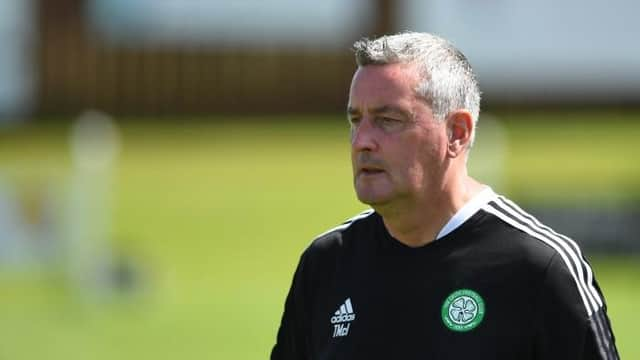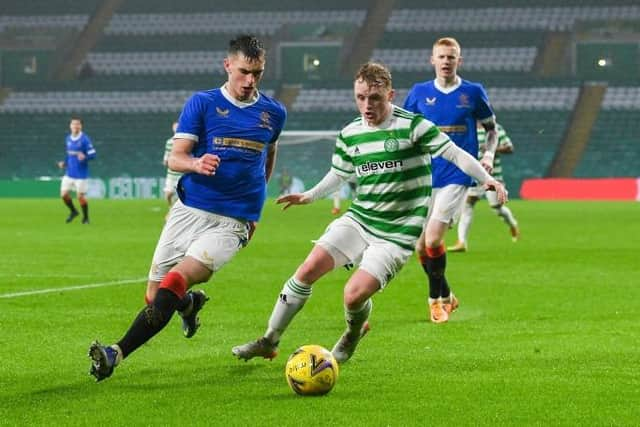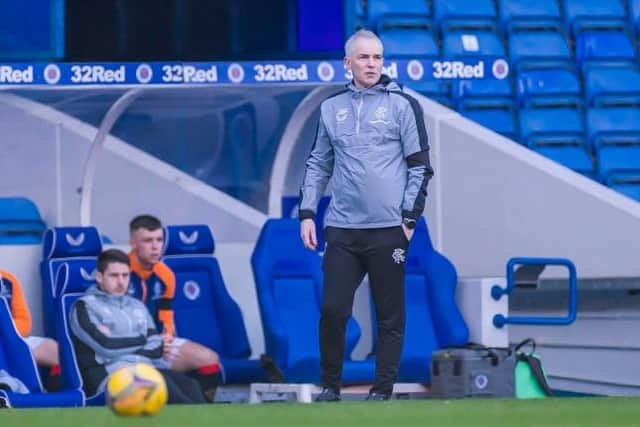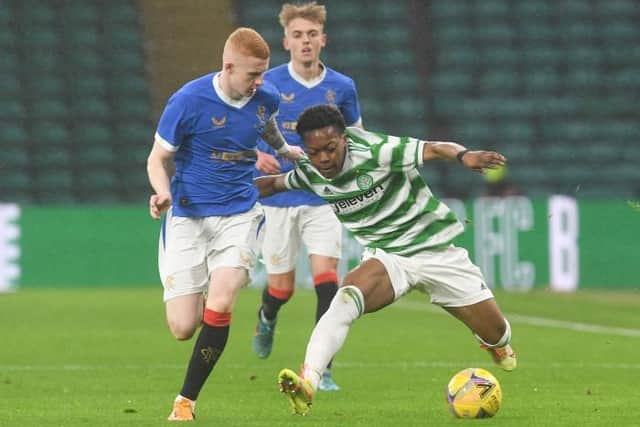Rangers, Celtic and the Lowland League: 'Strong sense' for snub, unseen impact, 'uneasy' for players at times


In fulfilling their wish to test their best young players against hardened senior opponents on a weekly basis in the Lowland League, both of the Glasgow giants saw it bear fruit with the development of talent with genuine first team potential.
If Rangers midfielder Alex Lowry was unquestionably the standard-bearer on that front, the 18-year-old making seven first team appearances and making Giovanni van Bronckhorst’s bench for the Europa League final, he was not alone.
Advertisement
Hide AdAdvertisement
Hide AdAdam Devine, Leon King, Charlie McCann, Cole McKinnon, Tony Weston and Ross McCausland all featured in the Ibrox club’s first team at least once, while Celtic B squad players Owen Moffat, Dane Murray, Karamoko Dembele, Joey Dawson and Ben Doak all tasted action for Ange Postecoglu’s Premiership champions.


But if the experiment was a successful one from the perspective of the Glasgow giants, it looks set to be short-lived.
At the Lowland League’s annual general meeting on Monday night, clubs are expected to reject a proposal to extend the competition to a lop-sided 19 clubs next season which would involve a Hearts B team joining the Old Firm sides.
Having initially approved another campaign with Celtic and Rangers, there has been a backlash against what is viewed as an ultimatum from the three Premiership clubs to accept them as a package or not at all.
The loss of the entry fee paid by the top flight teams, which was to be raised from £25,000 to £40,000, will be a financial blow to the Lowland League.


But the return to a set-up based solely on performance-based merit will be welcomed by many of the clubs and their supporters.
Brendan Parkinson, treasurer of Bonnyrigg Rose Athletic, is a former Lowland League board member and led the opposition to accepting the B teams last year.
While it ultimately did not hinder his club, who topped the table by a 14-point margin ahead of both Rangers and Celtic who finished second and third and then went on to secure promotion to the SPFL in the play-off final against Cowdenbeath, Parkinson’s view remains unchanged.
Advertisement
Hide AdAdvertisement
Hide Ad“I was very much against bringing Celtic and Rangers in from the start,” he says. “When they were admitted, we took the decision to make our games against them free on our season tickets. We didn’t want to be accused of trying to make any money out of them.


“When we played Celtic at home on the opening day of the season, we were restricted to a crowd of 250 at the time because of Covid anyway so we actually lost money in the sense that we had 300 season ticket holders.
“When we played Rangers at home later in the season, we did have a much bigger crowd than normal (942). There was clearly a novelty value in the fixtures for some fans. Some clubs in the league may have made money out of it.
“When we played Rangers and Celtic, they both had full strength squads. At other times, they played fixtures in the league with even younger players because of international call-ups.
“So even though they were not eligible for promotion if either of them had won the league, it’s wrong to say they didn’t have an impact on the outcome of the table because they were taking points off other teams.
“They absolutely did have an impact on league positions. We were glad to finish first because it negated any potential legal challenge about who were the champions.
“I haven’t spoken to anyone in the league about this but I have a strong sense that they will revert back to 16 teams for next season with no B teams.”
That will come as a blow to those responsible for the development of talent at both Old Firm clubs who have reflected positively on the Lowland League experience.
Advertisement
Hide AdAdvertisement
Hide Ad“It’s given the players that platform to showcase their talent,” said Celtic B team coach Tommy McIntyre.
“It’s been new for us but something that we’ve also really embraced and enjoyed. Previously, some would still be playing in under-17s and under-18s. But now they’re playing in front of crowds and playing against men.
“They’ve found it uneasy at times, which has been good and they’ve also got themselves, in some cases, close to the first team.”
McIntyre’s sentiments are echoed by Rangers B team coach David McCallum.
"Player progression is always going to be our challenge and when you look at the players who have made their debut or played more minutes with the first team and others who have had opportunities to train as well that itself gives you the reason why this B team is really important for us,” he said.
“It has been a good learning curve and the exposure to a competitive men's environment is good for them. Obviously the games are varied in terms of the level of challenge but every game presents a challenge in a different way.
“There have been a lot of different situations that have been important for us and I've not mentioned the fans there and the amount of fans we have had turning up, the media exposure for the players.
“We certainly appreciate the fact we have been allowed to play in this programme and hope going forward it will continue to challenge us.”
Advertisement
Hide AdAdvertisement
Hide AdBut barring a late compromise, that challenge looks set to be withdrawn on Monday.
While Rangers and Celtic B teams will still participate in the SPFL Trust Trophy against senior first team opponents next season, they may have to find alternative ways to fast-track the progress of their elite youngsters.
Comments
Want to join the conversation? Please or to comment on this article.